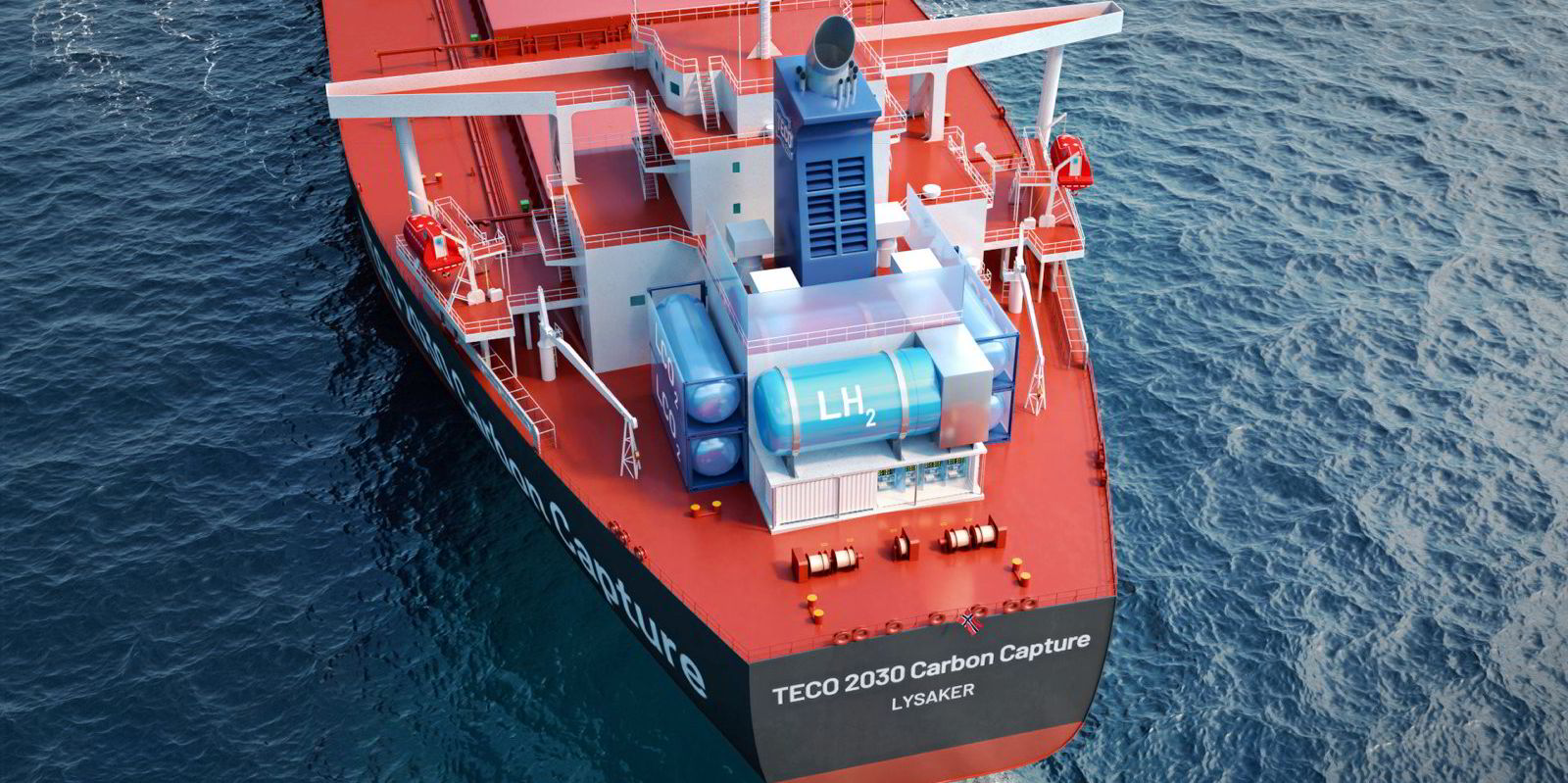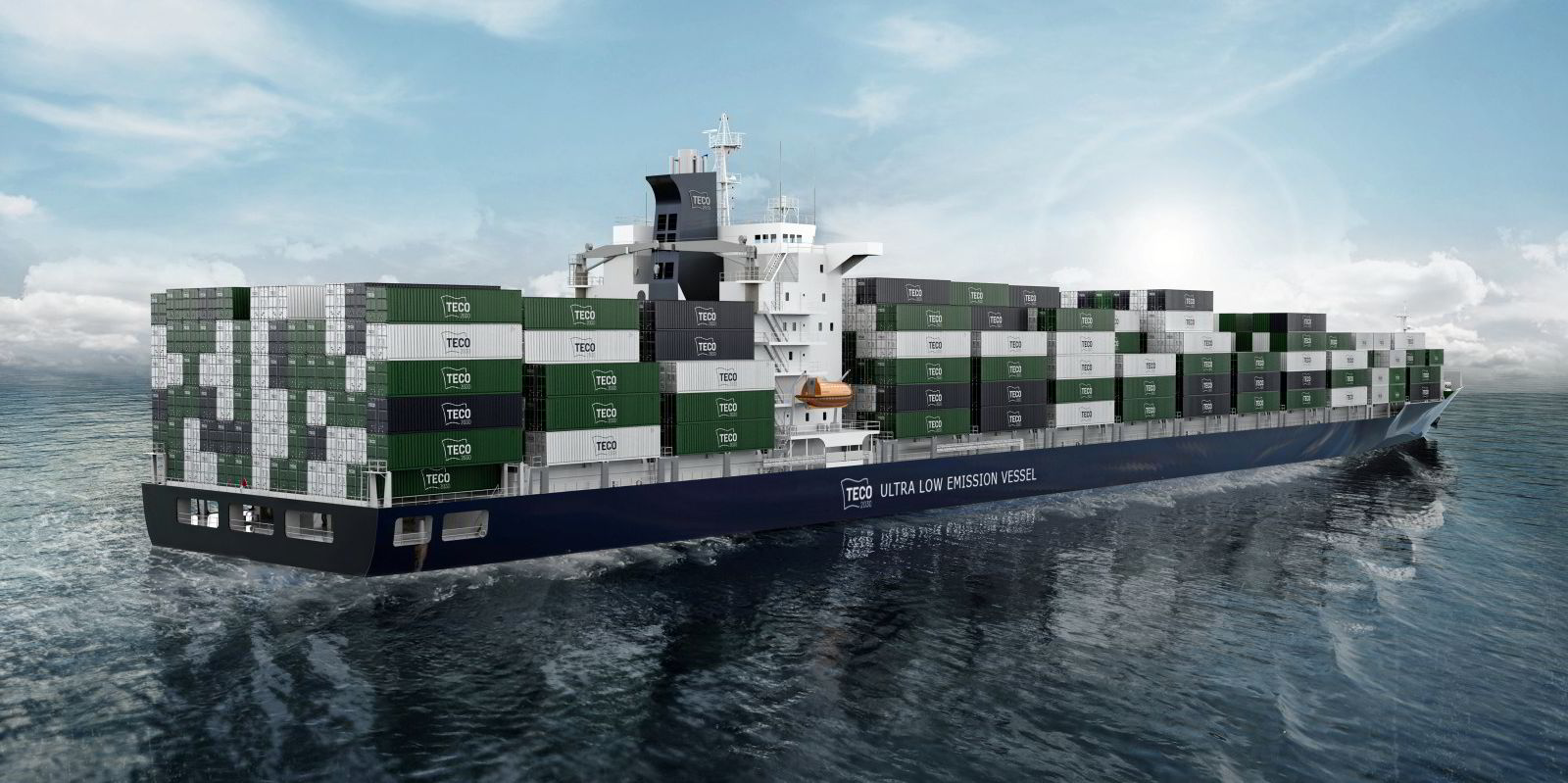Norway’s Teco 2030 is linking up with US-listed gases technology group Chart Industries to develop equipment that will capture carbon dioxide emitted by ships and store it in liquid form.
The two groups have agreed to jointly develop onboard carbon capture kit for ships using Cryogenic Carbon Capture technology developed by SES, a firm which was acquired by Chart Industries in December 2020.
The CCC technology will separate CO2 from the ships’ exhaust gases and create a high purity liquid CO2 product which can then be stored in cryogenic storage tanks until the ship reaches a port, they said.
After being offloaded, CO2 can then be permanently stored in geological formations underground or used in CO2-consuming industries, such as agricultural, industrial, energy or food and beverage.
When fully developed, the carbon capture solution will become available as a key element in the Teco 2030 Future Funnel, an exhaust gas cleaning system for ships developed by the Norwegian company.
“It will enable ships to capture and store the CO2 that they would otherwise have emitted into the air, and which would thereby have contributed to climate change,” said Stian Aakre, chief executive of Teco 2030.
Carbon capture and storage is the process of capturing emitted CO2 and transporting it to a storage site to prevent it from entering the atmosphere as a greenhouse gas.

Aakre added that TECO 2030 believes carbon capture for ships will become one of several measures that can help the shipping industry reach its decarbonisation goals. Each tonne of fossil fuel consumed by ships leads to about three tonnes of CO2 emissions.
A challenge for carbon capture onboard ships is that storing CO2 is space consuming while space on board ships is limited.
“We are excited to bring our carbon capture process expertise to the maritime industry with a partner like Teco 2030 that is dedicated to solving the emissions challenges facing shipowners,” said Jill Evanko, chief executive and president of Chart Industries.
The International Maritime Organization aims to reduce carbon intensity in international shipping by 40% by 2030, and to cut its annual greenhouse gas emissions by at least 50% by 2050 from 2008 levels.
Teco 2030 is also developing hydrogen fuel cells for the maritime industry that will enable ships to switch to green hydrogen produced from renewable energy and so be emissions-free.




